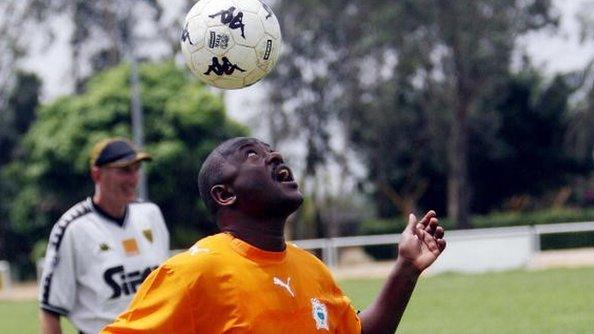Burundi bans use of motorbikes in parts of Bujumbura
- Published
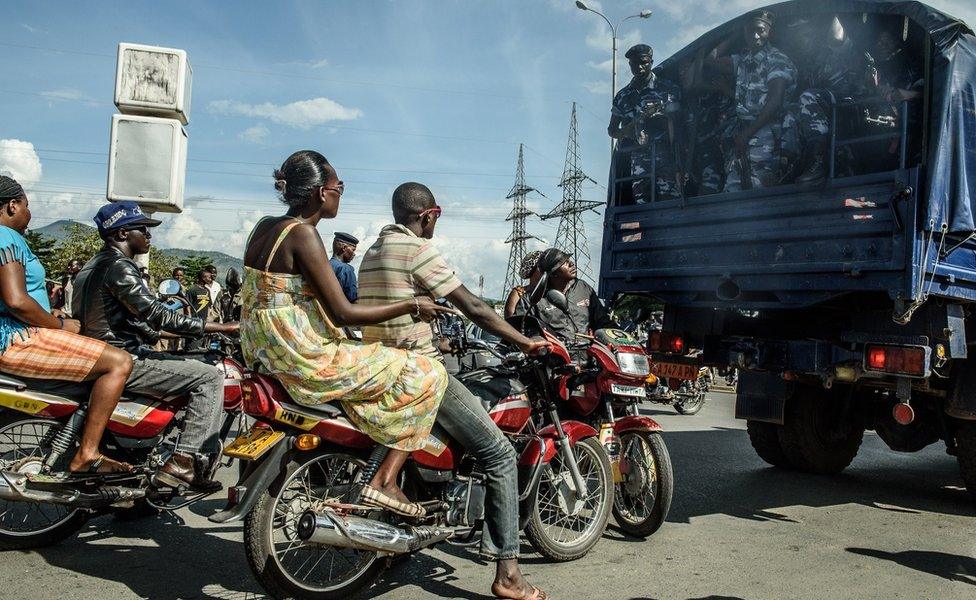
Many people use motorcycle taxis for transport
Burundi has banned the use of commercial motorbikes from the centre of the capital, Bujumbura, in a bid to end violence in the city.
Motorcycle taxis, a common form of transport in the city, are being used by criminals to carry out attacks, Bujumbura's mayor Freddy Mbonimpa said.
One person was killed on Monday when men on motorbikes threw three grenades.
Burundi plunged into crisis last April when President Pierre Nkurunziza announced his third-term bid.
His decision sparked street protests, a failed coup attempt and tit-for-tat killings have become part of daily lives in some parts of the capital.
Security has been boosted after Monday's attacks with soldiers and police searching vehicles and people, the AFP news agency reports.
"Police found that criminals often carry grenades in bags or baskets," Mr Mbonimpa said.
The BBC's Prime Ndikumagenge in the Bujumbura says the ban on motorcycles will make life more difficult for people travelling to different parts of the city.
One cannot get between southern and northern suburbs without passing through the city centre, he says.
Mr Nkurunziza, who has been in power since a 2005 peace deal that ended a brutal civil war, won disputed elections in July.
More than 400 people have been killed since April and at least 240,000 have fled to neighbouring countries.

Burundi's deepening crisis:
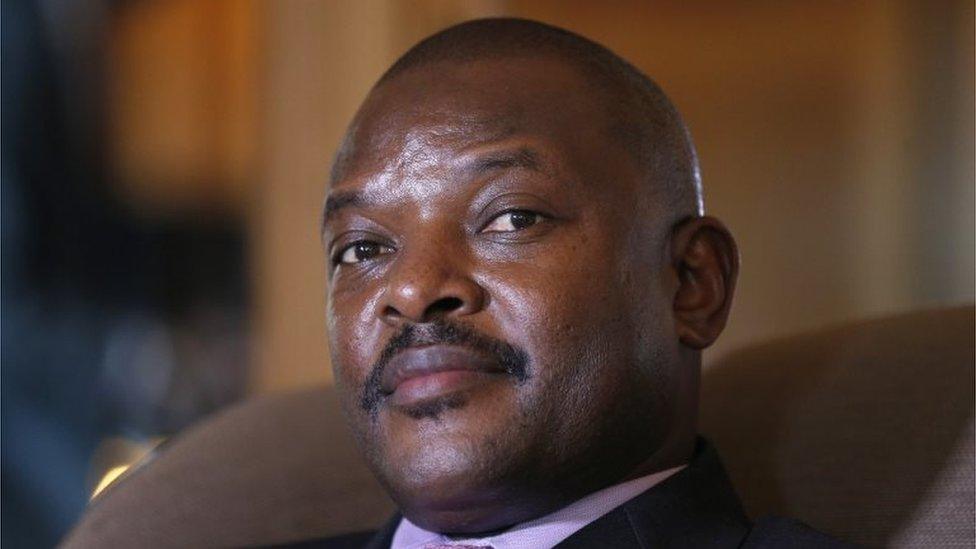
April 2015: Protests erupt after President Pierre Nkurunziza announces he will seek a third term in office.
May 2015: Constitutional court rules in favour of Mr Nkurunziza, amid reports of judges being intimidated. Tens of thousands flee violence amid protests.
May 2015: Army officers launch a coup attempt, which fails.
July 2015: Elections are held, with Mr Nkurunziza re-elected. The polls are disputed, with opposition leader Agathon Rwasa describing them as "a joke"
November 2015: Burundi government gives those opposing President Nkurunziza's third term five days to surrender their weapons ahead of a promised crackdown.
November 2015: UN warns it is less equipped to deal with violence in Burundi than it was for the Rwandan genocide.
December 2015: 87 people killed on one day as soldiers respond to an attack on military sites in Bujumbura.
January 2016: Amnesty International publishes satellite images, external it says are believed to be mass graves close to where December's killings took place

- Published3 November 2015
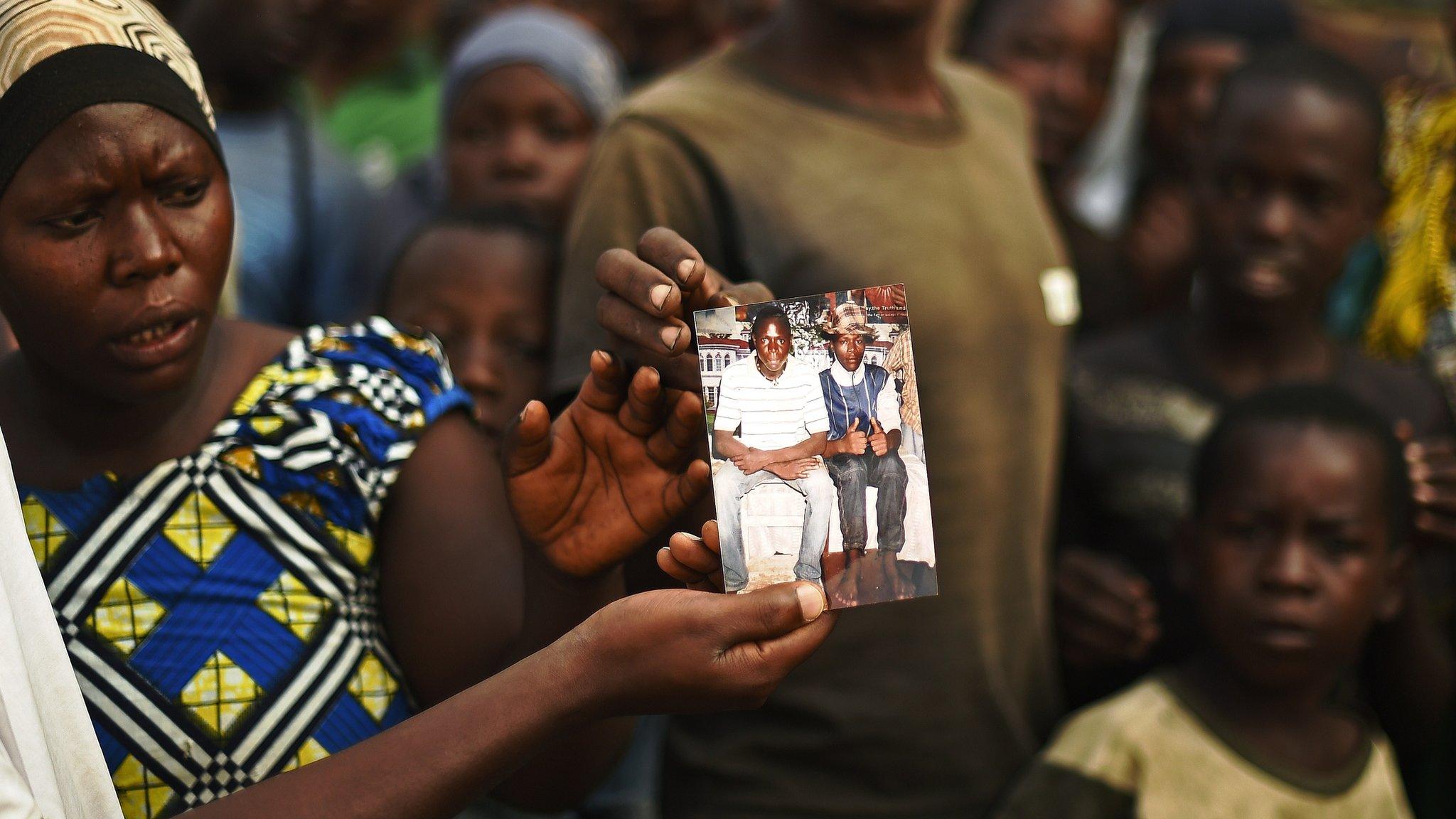
- Published1 February 2016
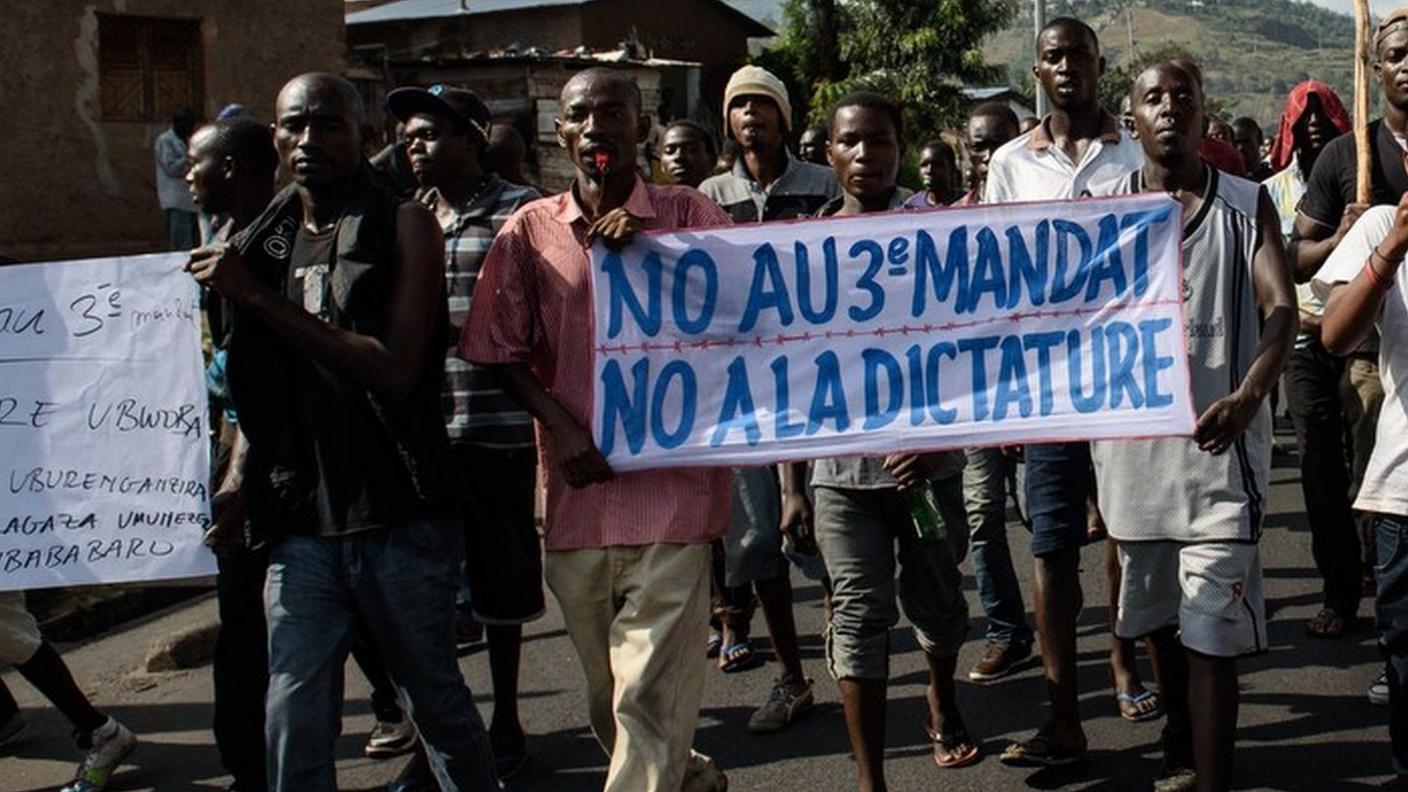
- Published2 December 2015
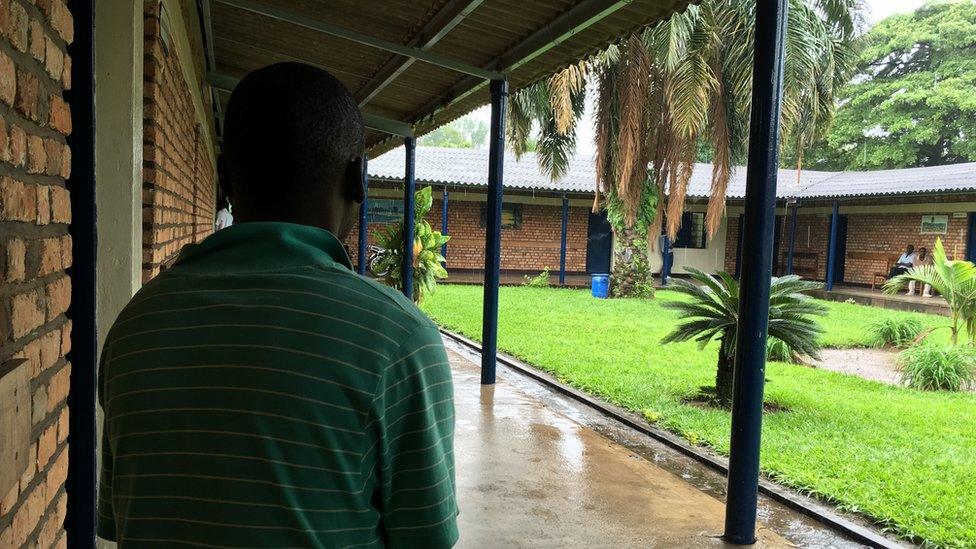
- Published31 July 2023
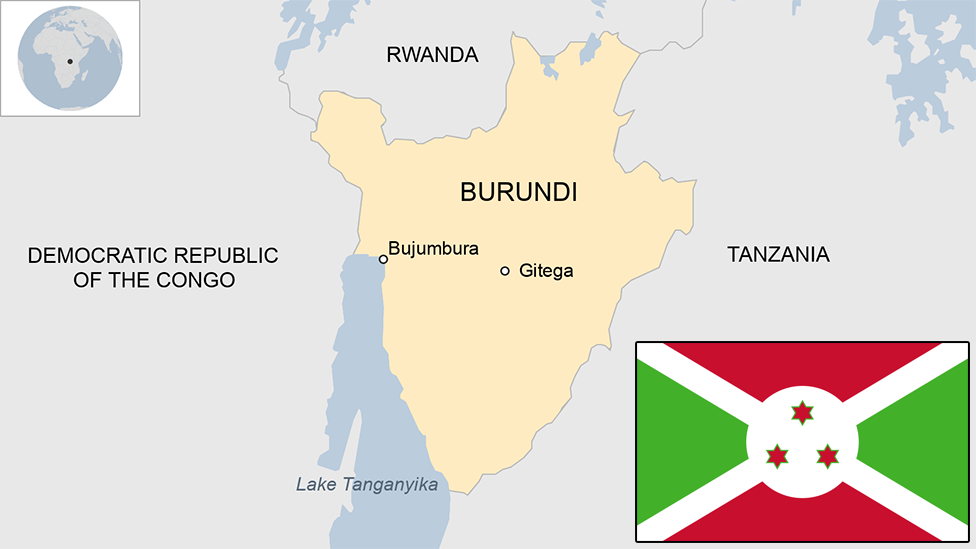
- Published14 October 2015
